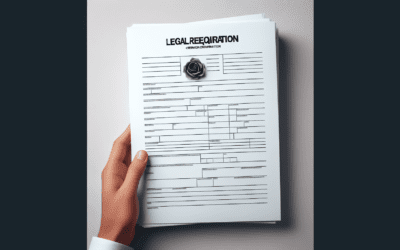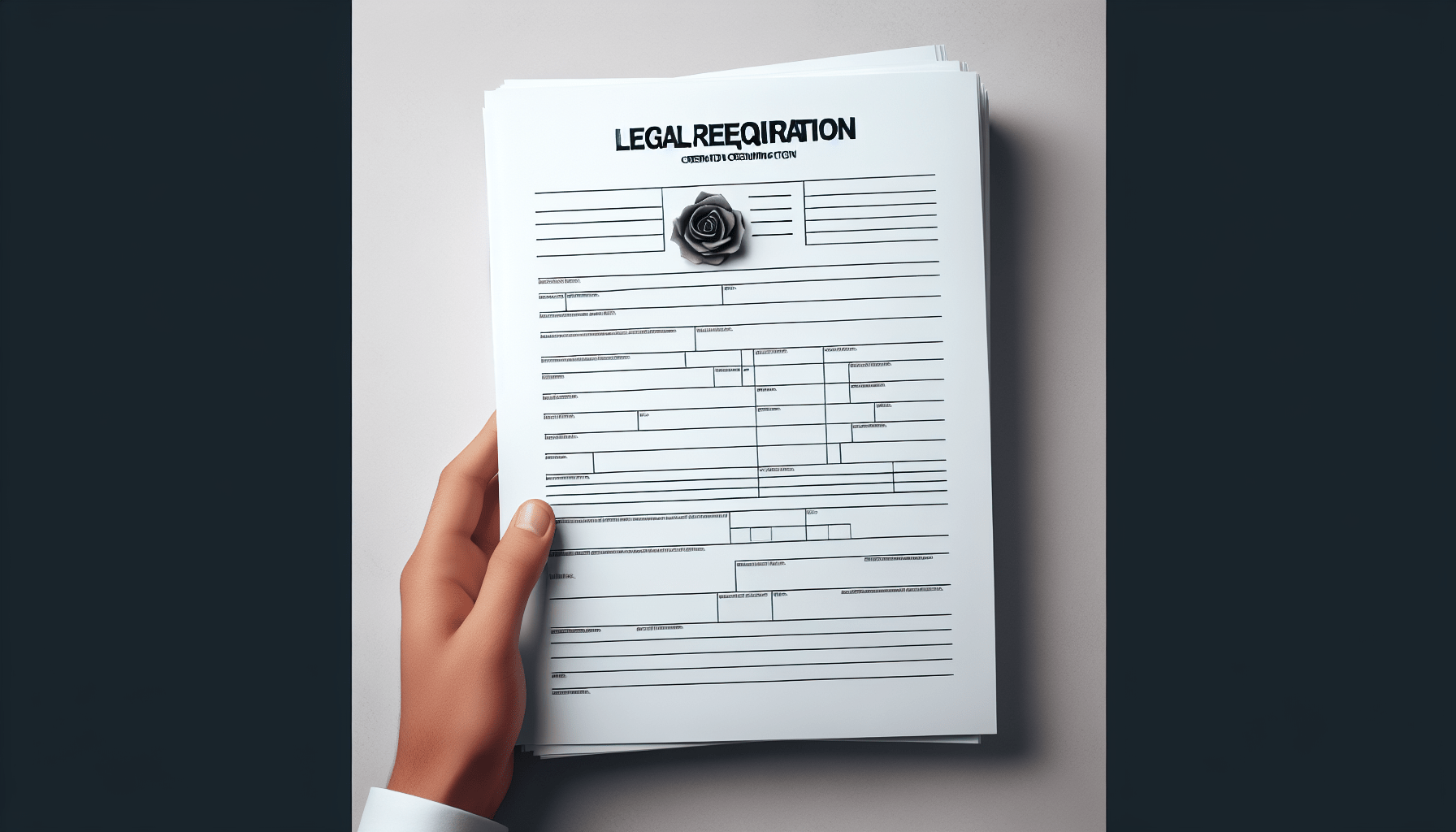If you find yourself facing the loss of a loved one in Atlanta, you may be wondering about the process of embalming. In this article, we will explore whether embalming is a mandatory requirement for the deceased in Atlanta. Discover the options available to you and gain a better understanding of what embalming entails, helping you make an informed decision during this difficult time.
Legal Requirements in Atlanta
Georgia State Law
When it comes to dealing with the deceased in Atlanta, it’s essential to be aware of the legal requirements set forth by Georgia state law. These laws govern various aspects of handling the deceased, including body preservation, cremation, and burial. Familiarizing yourself with these regulations is crucial to ensure that you fulfill all legal obligations and honor the wishes of the departed and their family.
Local Regulations
In addition to statewide laws, there are also local regulations that may apply within Atlanta. These regulations may vary from county to county, so it’s important to consult with the relevant authorities or a funeral home to fully understand the specific requirements for your situation. Local regulations often cover areas such as transportation, burial plot selection, and documentation. By adhering to these regulations, you can ensure a smooth and lawful process as you navigate the funeral arrangements.
Exceptions
While embalming is considered a standard practice in many cases, there are exceptions to this requirement in Atlanta. Georgia law does not require embalming unless the deceased is to be transported across state lines or if it’s necessary to prevent the spread of infectious diseases. If any exceptions apply to your situation, it’s important to consult with a funeral director who can provide guidance based on the specific circumstances.
Religious Considerations
Common Religious Views
Religion plays a significant role in how individuals and families approach death and the handling of the deceased. In Atlanta, a diverse range of religious views is respected and accommodated. Understanding the religious beliefs and practices of the deceased and their loved ones is crucial in ensuring that the funeral arrangements align with their beliefs. Common religious views in Atlanta include Christianity, Judaism, Islam, Hinduism, Buddhism, and various other faith traditions. Each religion may have specific practices and rituals surrounding death and funeral preparations, so it’s essential to consult with religious leaders or experts to understand and respect these beliefs.
Specific Policies
Within each religious tradition, there may be specific policies dictating how the deceased should be handled. For example, some religions require immediate burial or prohibit embalming, while others may have specific rituals surrounding cremation. It’s important to be sensitive to these policies and ensure that the chosen funeral home or service provider can accommodate the specific religious requirements. Discussing these policies with the deceased’s family and religious leaders can help determine the best course of action to honor their wishes and beliefs.
Body Preservation Alternatives
Refrigeration
Refrigeration is a commonly used preservation method that does not involve embalming. By keeping the body at a low temperature, typically between 35-40 degrees Fahrenheit, refrigeration can slow down the natural decomposition process until the funeral or memorial service takes place. Funeral homes often have dedicated facilities equipped with refrigeration units to provide this service. Refrigeration offers a less invasive and more natural alternative to embalming, allowing the deceased to be respectfully preserved for a period of time.
Dry Ice
Another alternative to embalming is using dry ice to preserve the body. Dry ice is solid carbon dioxide and can be placed in the casket or around the body to create a cooling effect. This method helps slow down the decomposition process and can be an effective short-term solution before the funeral or memorial service. However, it’s important to handle dry ice with caution, as it can cause skin injuries if not used properly.
Freezing
In certain cases, freezing the body may be an option for long-term preservation. Freezing prevents the decomposition process entirely and can be a suitable choice for individuals who wish to be cryogenically preserved. However, freezing the body requires specialized facilities and services, such as those provided by cryonics organizations. It’s essential to research and consult professionals experienced in this field if freezing is considered as an alternative to embalming.
Eco-Friendly Options
For individuals and families who prioritize environmental sustainability, eco-friendly body preservation alternatives are available. These options, such as natural burial or conservation burial, aim to minimize the environmental impact traditionally associated with burial or cremation. Natural burial involves interment in biodegradable materials without the use of embalming, concrete vaults, or metal caskets. Conservation burial focuses on preserving land and habitats while providing a final resting place for the deceased. Such alternatives allow for a more holistic approach that considers both the deceased’s wishes and the protection of the environment.
Cultural and Personal Preferences
Respecting the Deceased’s Wishes
One of the crucial aspects of planning a funeral or memorial service is respecting the wishes of the deceased. Every individual has unique preferences, and it is important to honor and adhere to these wishes whenever possible. Some individuals may have expressed their desires regarding body preservation or end-of-life arrangements prior to their passing, while others may have left specific instructions in their will or other written documents. Communicating with the deceased’s family and loved ones and keeping their wishes in mind can help create a meaningful and personalized funeral experience.
Funeral Home Services
Funeral homes play a vital role in assisting families during the grieving process and making funeral arrangements. They offer a range of services, including body preparation, transportation, memorial planning, and support for the family. When selecting a funeral home, consider their expertise, reputation, and the services they offer. Whether you opt for embalming or alternative preservation methods, choose a funeral home that aligns with your cultural and personal preferences and can provide the necessary arrangements and support during this difficult time.
Burial vs. Cremation
Deciding between burial and cremation is a personal choice that can be influenced by cultural, religious, and environmental factors. Burial involves interring the deceased’s body in a grave, while cremation involves the transformation of the body into ashes. Each option has its own considerations, such as the availability of burial plots, environmental impact, and the wishes of the deceased and their loved ones. The decision between burial and cremation should be made based on personal and cultural preferences, as well as any legal or religious requirements that may apply.
Costs and Benefits
Embalming Costs
Embalming is an additional service offered by funeral homes, and as such, it comes with associated costs. The exact price of embalming will vary depending on the funeral home, the location, and any additional services requested. It’s essential to inquire about the cost of embalming when discussing funeral arrangements to ensure that you have a comprehensive understanding of the overall expenses involved.
Embalming Benefits
Embalming, when necessary or desired, can provide certain benefits to the deceased and their loved ones. It allows for a more natural appearance of the body, providing comfort to the family during the funeral or visitation. Embalming can also help preserve the body for an extended period, allowing for more time to plan and hold the funeral or memorial service. Moreover, embalming can meet the legal requirements for transportation or public viewings, offering peace of mind in complying with necessary regulations.
Non-Embalming Cost Comparisons
For those considering alternatives to embalming, it is important to compare the costs associated with each option. Refrigeration, dry ice, freezing, or eco-friendly alternatives may have varying price points depending on the funeral home or service provider. Discussing these alternatives with funeral homes can help identify the most suitable choice based on personal preferences, legal requirements, and budget constraints.
Public Health Considerations
Contagious Diseases
In cases where the deceased has suffered from a contagious disease, special precautions may need to be taken to ensure public health and safety. The handling and transportation of the body may require specific protocols to prevent the spread of infection. Funeral homes are equipped to handle such situations and can provide guidance on appropriate methods of preserving and preparing the deceased, as well as any necessary documentation or permits. It’s crucial to prioritize public health when dealing with contagious diseases to protect the well-being of both the family and the wider community.
Public Safety Measures
Apart from contagious diseases, there may be other public safety measures to consider when handling the deceased. These measures may include securing the body during transportation, fulfilling documentation requirements, and adhering to local and state regulations. Funeral homes are knowledgeable about these safety measures and can ensure that all necessary precautions are taken to protect the public and ensure a smooth process.
Transportation Regulations
Domestic Transportation
Transporting the deceased within Atlanta or across state lines requires compliance with transportation regulations. Depending on the distance and mode of transportation, specific permits or certificates may be necessary. Funeral homes can assist in obtaining the required documentation and ensure that the transportation is carried out legally and respectfully. Planning and coordinating transportation with the funeral home can help navigate any potential challenges that may arise during this process.
International Transport
For cases involving the transportation of the deceased internationally, additional considerations and regulations must be followed. Each country has its own requirements and procedures, including permits, documentation, and coordination with foreign authorities. Funeral homes experienced in international repatriation services can guide families through the complex process and liaise with the relevant organizations to ensure a smooth and lawful transport of the deceased to their final destination.
Choosing a Funeral Home
Embalming Policies
If embalming is your preferred choice or a requirement for transportation or public viewings, it’s important to select a funeral home that provides this service. Not all funeral homes offer embalming, and their policies may vary regarding the circumstances under which it is performed. When choosing a funeral home, inquire about their embalming practices, the qualifications of their embalmers, and any additional precautions they take to maintain high standards of care.
Available Services
Consider the range of services offered by a funeral home when making your selection. Funeral homes often provide various options for body preservation, funeral planning, memorial services, and grief support. It’s important to choose a funeral home that can cater to your specific needs and preferences, ensuring that all aspects of the funeral arrangements meet your expectations and requirements.
Expertise and Reputation
The expertise and reputation of a funeral home can significantly impact the overall funeral experience. Seek recommendations, read reviews, or ask for references to assess the quality of service provided by a funeral home. A reputable and experienced funeral home will have a well-established track record and a team of compassionate professionals who can guide you through the entire process with care and sensitivity.
Role of the Funeral Director
Consultation and Guidance
The funeral director plays a crucial role in guiding and assisting families throughout the funeral planning process. They offer consultation services to understand the wishes of the deceased and their loved ones, provide guidance on legal requirements and cultural considerations, and help make informed decisions regarding body preservation, burial or cremation, and overall funeral arrangements. Funeral directors are trained professionals who can provide expert advice and support during this challenging time.
Laws and Ethical Codes
Funeral directors are bound by legal and ethical codes that govern their profession. They ensure that all necessary permits, documentation, and regulations are followed, and that the body is treated with the utmost respect and dignity. By relying on the expertise of a funeral director, families can have confidence that all legal requirements and ethical standards are met throughout the entire funeral process.
Final Resting Place Options
Cemetery Requirements
If burial is the chosen option, it’s important to understand the cemetery requirements and regulations. Each cemetery may have its own set of guidelines regarding plot selection, grave markers, and casket specifications. Exploring different cemetery options and discussing these requirements with the chosen cemetery can help ensure compliance with their policies and create a suitable final resting place for the deceased.
Cremation and Ashes Handling
For families considering cremation, it’s crucial to understand the process and discuss the handling of the ashes. Cremated remains can be kept in an urn, scattered in a designated area, or even incorporated into memorial jewelry or other mementos. It’s essential to consult with a funeral home or crematory to understand the available options and any legal or cultural considerations when handling and dispersing the ashes.
In conclusion, navigating the legal, cultural, and personal aspects of funeral arrangements in Atlanta can be complex. Understanding the legal requirements, religious considerations, body preservation alternatives, cultural preferences, costs and benefits, public health considerations, transportation regulations, funeral home choices, the role of the funeral director, and final resting place options is crucial in planning a respectful and meaningful farewell for your loved one. By being well-informed and seeking guidance from professionals, you can ensure that the funeral arrangements align with your beliefs, honor the wishes of the deceased, and provide solace and support to the grieving family and friends.








0 Comments